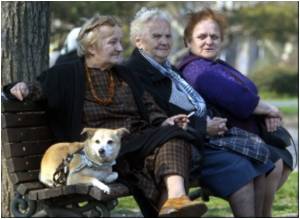Postmenopausal women are at high risk of heart failure. The risk increases in women who attain early menopause and those who had never given birth, finds a study.
- Women who experience early menopause may be at an elevated risk of heart failure
- A shorter reproductive duration, that is, the time from first menstruation to menopause, can increase heart failure risk
- Women who never gave birth were at higher risk of diastolic heart failure.
The research team used the data from the Women's Health Initiative to find the link between menopause and cardiovascular disease. The study involved 28,516 postmenopausal women without cardiovascular disease. The team assessed the total number of live births, age at first pregnancy lasting at least six months, and reproductive duration, which is the time from first menstruation until menopause for risk of heart failure.
During a follow-up of 13 years, 5 percent of the participants were hospitalized for heart failure. The team found an association between short total reproductive duration and an increased risk of heart failure.
Women who never gave birth were more likely to suffer from diastolic heart failure, a condition where the left side of the heart does not relax. The association was found to be connected more directly to an early menopause that occurred naturally rather than a surgical menopause (removal of the ovaries).
"Our finding that a shorter total reproductive duration was associated with a modestly increased risk of heart failure might be due to the increased coronary heart disease risk that accompanies early menopause," said Nisha I. Parikh, MD, MPH, assistant professor at the University of California, San Francisco School of Medicine and senior author of the study.
In the study published in the Journal of the American College of Cardiology,Nandita S. Scott, MD, co-director of the Corrigan Women's Heart Health Program at Massachusetts General Hospital, said, “The mechanism of these findings are unclear, but the potential impact of early menopause and heart failure on women’s health is real.”
Reference
- Philip S. Hall, Gregory Nah, Barbara V. Howard, Cora E. Lewis, Matthew A. Allison, Gloria E. Sarto, Molly E. Waring, Lisette T. Jacobson, JoAnn E. Manson, Liviu Klein, Nisha I. Parikh. Reproductive Factors and Incidence of Heart Failure Hospitalization in the Women’s Health Initiative. Journal of the American College of Cardiology, 2017; 69 (20): 2517 DOI: 10.1016/j.jacc.2017.03.557
Source-Medindia















